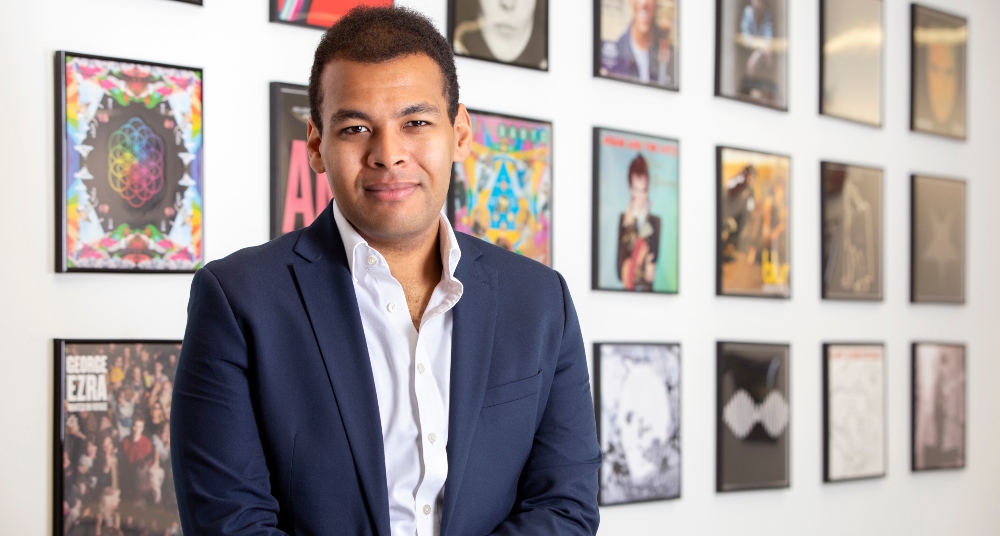Each of us will have a different story of how we first came to music.
For some, it was a parent playing a favourite record to them as children. Others might have been given an instrument at school, or taken to a gig.
For me it was a charity – the brilliant CAVATINA Chamber Music Trust – that took me to a string quartet concert when I was a teenager, where I had a transformative experience that turned music from a passing interest into a lifelong passion.
But while lots of us were lucky enough to have those formative musical experiences when we were growing up, too many young people today are not getting access to the potentially life changing opportunities that music can bring.
Music education has suffered during the pandemic. According to the ISM, more than two-thirds of primary school teachers and more than a third of secondary school teachers reported a reduction in music provision as a direct result of the pandemic. Meanwhile, almost one in ten primary and secondary schools are not teaching music as part of the curriculum at all.
'Improving opportunities for music education is especially important when it comes to improving diversity in our industry.'
This should worry all of us who care about the future of the our sector. Music education is one of the key ingredients in the success of British music – it’s the foundation on which musical knowledge, skills and creativity are built. We need to make sure that music education is open to all if we want to have a successful, diverse and sustainable industry going forward.
When it comes to music education there can be considerable socioeconomic barriers and disparities. Organisations like Tomorrows Warriors, London Music Fund and Youth Music are doing fantastic work in introducing children from all different backgrounds to music, but more support is needed.
In its recent consultation on music education, the Government asked young people what had prevented them taking up musical activities. The most common answer was cost – 63.9 percent of young people said they had not taken up musical activities because it was too expensive (compared to just 4.6 percent who said they hadn’t taken up musical activities because they weren’t interested).
This is devastating, not least because it means that countless children and young people are being locked out of our sector. It also means that the UK risks missing out on a whole generation of future success stories – not because of a lack of talent or potential, but because of a lack of opportunity.
'Funding cuts will disproportionately impact pupils from state schools and lower socioeconomic backgrounds.'
Every child should have access to music no matter what their background – so as part of our recently released This Is Music report we called for a commitment from the Government to boost its investment in music education.
Implementing schemes, like those proposed by the Welsh and Scottish governments, to guarantee to meet the costs of learning a musical instrument through funding for instruments or lessons, would help break down financial barriers that many families face when looking at providing music education for their children.
Early years education is important, and this makes increased funding for music education at primary level critical. Music education also faces cuts at higher education, following a recommendation by the Office for Students, which we urge the Government to reverse. Funding cuts will disproportionately impact pupils from state schools and lower socioeconomic backgrounds. There is also a need for progress on promised initiatives such as the Arts Premium.
UK Music has long warned of challenges in the UK’s talent pipeline as student participation in music at GCSE and A-Level declines. We need equal access to music education across the UK to level up and ensure a diverse and inclusive talent pipeline. Without this, the UK will lose out on significant potential talent.
'We need to ensure that as a country and as an industry we are creating opportunities for everyone.'
Music education is not just important to the industry – it is essential to our wider society as well. Regardless of whether someone pursues music as a career, immersing oneself in music education enriches lives, develops character, skills and aptitude.
And it isn’t only the music industry that values music education and wants to see better provision – the public cares about it too. When asked in a poll conducted by Public First for UK Music, 54 percent of parents stated that the quality of music education was an important factor in deciding where to send their child. 44 percent of adults wish that they had spent more time on music at school and over half of parents whose children are learning an instrument believe it has helped their children with other skills like creative thinking (56 percent) or boosting their confidence (54 percent) and encouraging perseverance and patience (49 percent).
Improving opportunities for music education is especially important when it comes to improving diversity in our industry. It’s mission critical that we ensure we are an open and inclusive sector, one that is accessible to people from all backgrounds – regardless of their ethnicity, gender, sexuality, disability, or socioeconomic circumstances.
As we come to the end of Black History Month, we should remember that talent is everywhere, opportunity is not. We need to ensure that as a country and as an industry we are creating opportunities for everyone – and that means ensuring the transformative benefits that a music education can bring are available for all to access.
Stay up to date with Jamie Njoku-Goodwin and UK Music on Twitter.




